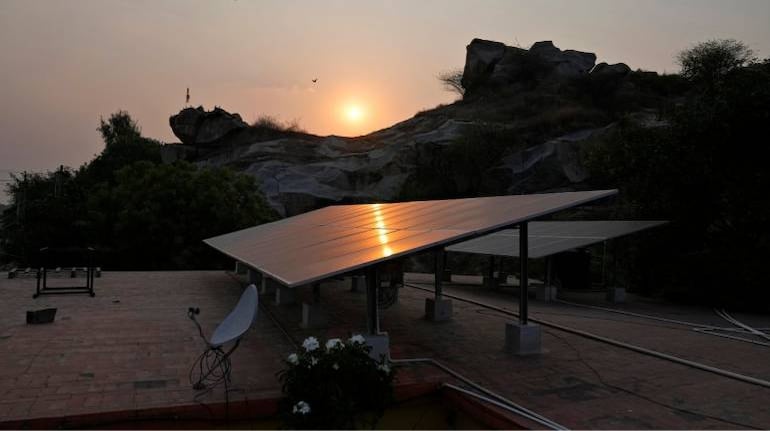



Saying that non-fossil fuel sources present a growth opportunity, Ricardo Hausmann, the founder-director of Harvard Growth Lab, added that the next government, which comes to power in India after the 2024 general election, needs to focus on producing more renewable energy and become a part of the global value chain as it’s a growing economy.
The government that is formed after the general election in 2024 should focus on three priorities towards sustainable energy, including manufacturing renewable energy, reducing local pollution and India becoming a part of the global value chains, the senior Harvard professor said.
“India’s emissions are one-seventh of the emissions per capita of the US. First, India is a growing economy and needs to produce enough energy. Second, improve the atmosphere because of local pollution. Third, building major solar panel factories can get India into many value chains. India also has plenty of potential to develop hydropower in the Himalayas, Nepal and Bhutan,” Ricardo Hausmann, Founder and Director of Harvard Growth Lab, Harvard University, told Moneycontrol in an exclusive interview.
The share of renewable energy, including hydropower, in India is likely to touch 40 percent by 2030 from the current 23 percent, according to a report from research agency ICRA.
“One reason to develop green energy is because the world needs to decarbonise. India has to move its energy-intensive activity towards green energy. Re-localisation of manufacturing to places where cheap reliable green energy is produced is needed,” said Hausmann.
He said that the question before the next government will be if India can become a major provider of green energy, which is a growth opportunity.
“India will benefit from manufacturing things that the decarbonising world will need. It can be a growth strategy,” he said.
India has been deploying renewables at a rapid clip and has promised in its nationally determined contributions to increase green energy capacity to as much as 50 percent of its total power generation capacity.
The challenge of carbon reduction is what the countries need to do to lower emissions. However, focusing only on reducing emissions is looking at it wrong because it does not explore efficient opportunities that are growth-enhancing.
“The world is not going to decarbonise by each country focusing on their decarbonisation. For that, the countries need many things that enable them to decarbonise. If these things are not produced in enough quantities and their prices are going to go up, how will decarbonisation become affordable? So it’s important the world produces more of the things that a decarbonising world will need,” the Harvard professor said.
It has led to the ridiculous situation of asking countries like Bolivia, which is sitting on the world’s largest lithium reserves of the world, to lower emissions, Hausmann said.
“It is in the world's favour for Bolivia to develop lithium to produce more batteries, electric vehicles and lower emissions globally. Countries need to focus on what they can produce — solar panels, windmills, electrolysers — that can enable the world to lower emissions. It's a more win-win frame that developing countries should think of,” he added.
Under the Indian government’s production-linked incentive (PLI) scheme, a US-based company is building a manufacturing unit of solar modules near Chennai.
The New Delhi Declaration adopted in September by the G20 nations during India's presidency said all member nations “will pursue and encourage efforts to triple renewable energy capacity globally through existing targets and policies, as well as demonstrate similar ambition concerning other zero and low-emission technologies, including abatement and removal technologies, in line with national circumstances by 2030”.
The countries that constitute the G20 account for over 80 percent of global emissions and a collective effort by the grouping to decarbonise is a crucial step in combating climate change.
Discover the latest Business News, Sensex, and Nifty updates. Obtain Personal Finance insights, tax queries, and expert opinions on Moneycontrol or download the Moneycontrol App to stay updated!
Find the best of Al News in one place, specially curated for you every weekend.
Stay on top of the latest tech trends and biggest startup news.